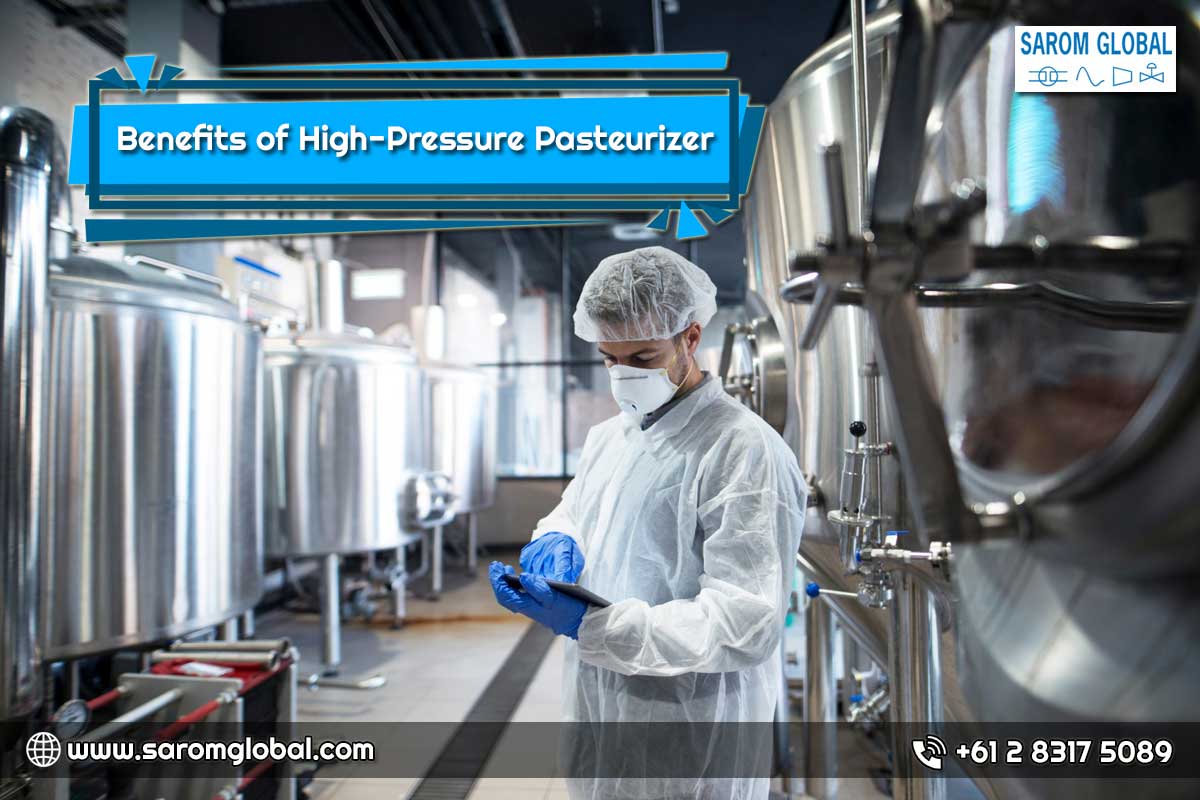
Many Australians receive a significant portion of their dietary calories from beverages rather than from food. Even those branded as “all-natural” or “healthy,” many of these beverages are lacking nutritional value and serve only to give empty calories. High-pressure pasteurisation (HPP) is a new beverage pasteurisation process that has a number of advantages over older pasteurisers and pasteurising methods and can help your processing plant produce a safe and nutritious beverage. Continue reading to learn why High-Pressure pasteuriser/pasteurisation should be used in your beverage preparations.
Inhibition of Harmful Pathogen Growth
Pasteurization (Using all pasteurisers) or homogenization of any food or beverage is done for two primary reasons:
1) Its ability to kill spoilage organisms like yeast and lactic acid bacteria, as well as pathogens like E. coli, Salmonella, and Listeria; and
2) Its ability to improve food safety by killing pathogens like E. coli, Salmonella, and Listeria.
Maintaining Nutrition and Flavour
Food and beverage companies that don’t employ high-pressure pasteurisers to kill bacteria are more than likely using regular heat pasteurisation. The main distinction is that the traditional approach relies on heat, whereas the high-pressure pasteuriser relies on pressure. Heat has been shown to damage and/or eliminate important nutrients found naturally in these beverages, which is one of the main reasons why industry leaders choose to employ high-pressure pasteurizers instead. HPP has been found to keep beverage nutritional content while also preserving natural flavours, a feat that no other technique can match.
Wider Range of Ingredients
While deciding on beverage components, a high-pressure pasteuriser’s capacity to boost safety while retaining nutrient quality is a vital issue to consider. Ingredients whose quality nutrients would be cooked out may not be used in beverages designated for thermal pasteurisation, since this would be a waste of money and resources. HPP-treated beverages, on the other hand, may contain additives that were not previously considered for pasteurised beverages. Another advantage of using more ingredients is that you’ll use fewer artificial substances, whether for flavour or nourishment.
Pasteuriser Improved Shelf Life
Beer is one of the most popular beverages in Australia, and it must be consumed within days of purchase if purchased new. Beers that have undergone HPP, on the other hand, have a longer shelf life. In general, HPP can extend the shelf life of a product by two to three times when compared to a non-pasteurized product. Furthermore, items that have been treated to heat pasteurisation frequently require freezing as a technique of preservation. HPP, on the other hand, permits products to be kept on the shelf for long periods of time without rotting.
SAROM GLOBAL’s HERMIS Pasteuriser for Food and Beverages
Whenever your pasteurising plant decides to engage HPP to prepare beverages, one of the first things on the plan will be to buy the necessary equipment. SAROM GLOBAL is well-known among industrial plants and manufacturers around the world for its cutting-edge technologies. Colour and flavour retention, shelf life, and texture are all improved using their high-pressure processing/pasteurisers and equipment. It also helps to meet the increased demand for organic and preservative-free products by preserving naturally existing vitamins and antioxidants in food.
If you are looking for the best tried and tested HERMIS pasteuriser in Australia and New Zealand, contact SAROM GLOBAL.
Contact us
SAROM GLOBAL
info@saromglobal.com
